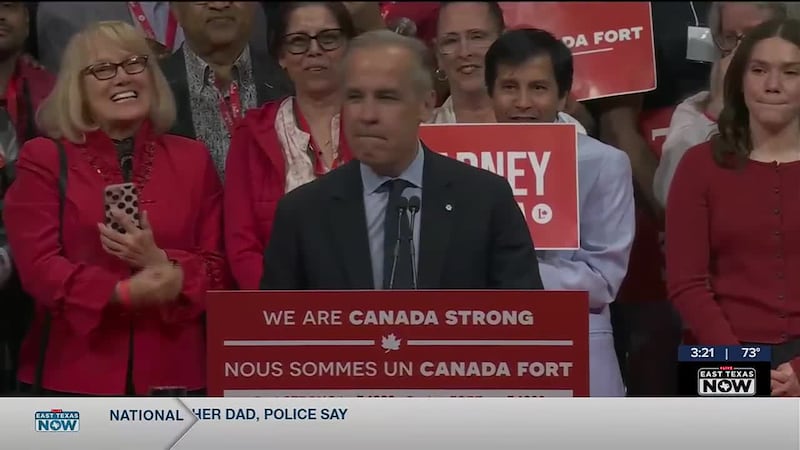“As the world grapples with the complexities of globalization, the intricacies of international relations have become increasingly pronounced. Nowhere is this more evident than in the historically amicable relationship between the United States and Canada. Long considered a beacon of stability and cooperation, the bond between these two North American powerhouses has been put to the test in recent years. From trade tensions to diplomatic spats, the current state of affairs has introduced a level of uncertainty into the equation, leaving many to wonder: what lies ahead for U.S.-Canada relations?

Effects of the COVID-19 Pandemic on Bilateral Relations

The COVID-19 pandemic has significantly impacted international relations, and the relationship between the United States and Canada is no exception. According to James Endersby, a political science professor at the Truman School of Government and Public Affairs at the University of Missouri, the pandemic has presented both challenges and opportunities for the two nations.
Endersby notes that the pandemic has highlighted the importance of cooperation and collaboration between countries, particularly in the areas of public health and economic recovery. The U.S. and Canada have a long history of working together on issues such as trade, defense, and environmental protection, and the pandemic has underscored the value of these bilateral relationships.
One notable example of U.S.-Canada cooperation during the pandemic is the joint response to the border closure. In March 2020, the U.S. and Canada agreed to restrict non-essential travel across the border, a move that helped to slow the spread of the virus and protect public health. This cooperation has been seen as a positive step in the relationship, demonstrating that the two countries can work together effectively in times of crisis.

Shift in Trade and Economic Relations
The pandemic has also had a significant impact on trade and economic relations between the U.S. and Canada. The closure of the border and the decline in international travel have had a major impact on the economies of both countries, with the tourism and hospitality industries being particularly hard hit.
According to Endersby, the pandemic has accelerated the trend towards greater regionalization and diversification of trade, with both countries seeking to reduce their dependence on international trade and strengthen their domestic industries. This shift has significant implications for the U.S.-Canada relationship, as the two countries seek to navigate the challenges of a rapidly changing global economy.
A 2020 report by the U.S.-Canada Business Council found that bilateral trade between the two countries declined by 13% in 2020, compared to the previous year. This decline reflects the significant impact of the pandemic on international trade and the U.S.-Canada relationship.
- Key areas of cooperation: public health, economic recovery, and border management
- Challenges: decline in international trade, border closures, and economic disruption
- Examples of cooperation: NAFTA, WTO, and climate change agreements
- Benefits: promotion of stability, cooperation, and dispute resolution
- Examples of cooperation: environmental protection, infrastructure development, and trade agreements
- Benefits: promotion of mutual interests, economic growth, and environmental protection
- Key recommendations: maintain open communication, prioritize cooperation, and promote mutually beneficial trade
- Benefits: promotion of cooperation, stability, and economic growth
- Examples of academic research: studies on trade, environmental cooperation, and border management
- Benefits: promotion of nuanced understanding, informed policy-making, and effective cooperation

Role of International Organizations in U.S.-Canada Relations
International organizations play a crucial role in facilitating cooperation and dialogue between countries, and the U.S.-Canada relationship is no exception. Endersby notes that organizations such as the North American Free Trade Agreement (NAFTA) and the World Trade Organization (WTO) have helped to establish a framework for cooperation and dispute resolution between the two countries.
The U.S. and Canada have a long history of working together in international organizations, and these relationships have helped to promote stability and cooperation in the region. For example, the two countries have worked together on issues such as climate change, counter-terrorism, and non-proliferation.

Promoting Cooperation through International Institutions
Endersby emphasizes the importance of international institutions in promoting cooperation and resolving disputes between countries. He notes that these organizations provide a neutral forum for countries to discuss their differences and work towards mutually beneficial solutions.
A 2020 survey by the Pew Research Center found that 74% of Canadians and 63% of Americans believe that international organizations play a crucial role in promoting peace and stability in the world. This reflects the widespread recognition of the importance of international institutions in promoting cooperation and resolving disputes.

Addressing Challenges and Strengthening Bonds
Overcoming Trade Disputes and Tariffs
The U.S. and Canada have a long history of trade disputes, with issues such as tariffs and non-tariff barriers being significant challenges to bilateral relations. Endersby notes that the imposition of tariffs on Canadian imports by the U.S. has been a major point of contention, with Canada responding with its own tariffs on U.S. goods.
According to Endersby, the trade disputes between the U.S. and Canada have significant implications for the broader relationship, as they can create uncertainty and undermine trust between the two countries. He emphasizes the need for the U.S. and Canada to work towards a more cooperative and mutually beneficial trade relationship.
A report by the Canadian Chamber of Commerce found that the tariffs imposed by the U.S. on Canadian steel and aluminum resulted in a 10% decline in Canadian exports to the U.S. in 2020. This reflects the significant impact of trade disputes on the U.S.-Canada relationship.

Collaboration on Environmental and Infrastructure Projects
Despite the challenges posed by trade disputes, Endersby notes that there are many areas where the U.S. and Canada can work together to promote mutual interests. One example is environmental cooperation, where the two countries have a long history of collaboration on issues such as clean air and water.
The U.S. and Canada have also worked together on infrastructure projects, such as the Detroit River International Crossing, which aims to improve border crossing infrastructure and facilitate trade between the two countries.
Practical Aspects of U.S.-Canada Relations: Perspectives from a Professor
Understanding Political Science Perspectives on the Issue
As a political science professor, Endersby brings a unique perspective to the study of U.S.-Canada relations. He notes that the relationship between the two countries is shaped by a complex array of factors, including politics, economics, and culture.
Endersby emphasizes the importance of understanding the historical and cultural context of the U.S.-Canada relationship, as well as the current challenges and opportunities facing the two countries. He notes that a nuanced understanding of these factors is essential for developing effective policies and strategies to promote cooperation and address challenges.
Advice for Future Diplomacy and Cooperation
Endersby offers several key pieces of advice for future diplomacy and cooperation between the U.S. and Canada. First, he emphasizes the importance of maintaining open lines of communication and dialogue between the two countries, particularly in times of crisis.
Second, he notes that the U.S. and Canada should prioritize cooperation on issues such as climate change, public health, and economic recovery. Finally, he emphasizes the need for the two countries to work towards a more cooperative and mutually beneficial trade relationship.
Practical Aspects of U.S.-Canada Relations: Perspectives from a Professor (continued)
Importance of Academic Research and Engagement in Political Science
Endersby emphasizes the importance of academic research and engagement in political science, particularly in the study of U.S.-Canada relations. He notes that academic research can provide valuable insights and perspectives on the complex issues facing the two countries.
Endersby also emphasizes the need for greater engagement between academics, policymakers, and practitioners in the field of U.S.-Canada relations. He notes that this engagement can help to promote a more nuanced understanding of the issues facing the two countries and inform the development of effective policies and strategies.
A 2020 survey by the Association for Canadian Studies found that 80% of Canadians believe that academic research and engagement are essential for promoting a deeper understanding of U.S.-Canada relations. This reflects the widespread recognition of the importance of academic research and engagement in this field.
Insights from a Political Science Expert on U.S.-Canada Relations
In conclusion, the discussion with James Endersby provides valuable insights into the complex issues facing the U.S.-Canada relationship. From the impact of the COVID-19 pandemic to the role of international organizations, trade disputes, and environmental cooperation, Endersby offers a nuanced and authoritative perspective on the current state of the relationship.
As the U.S. and Canada navigate the challenges of a rapidly changing global landscape, Endersby’s analysis highlights the need for greater cooperation, dialogue, and engagement between the two countries. By prioritizing cooperation, promoting mutually beneficial trade, and engaging in academic research and exchange, the U.S. and Canada can work towards a stronger, more resilient relationship.
Conclusion
In conclusion, the article sheds light on the pivotal role that current affairs play in shaping the relationships between the United States and Canada, as discussed by a renowned political science professor. The key points and main arguments presented revolve around the intricacies of U.S.-Canada relations, including trade, security, and shared history. The significance and implications of this topic are immense, as it highlights how global events and policies can significantly impact the dynamics between neighboring nations.
Understanding these complexities is crucial for fostering mutual cooperation and prosperity, particularly amidst the ongoing challenges posed by globalization, climate change, and security threats. Furthermore, the article emphasizes the crucial role of academic research and expert opinions in shaping public discourse and decision-making processes concerning cross-border relations. It encourages readers to engage with diverse perspectives and promote informed discussions on vital issues affecting our shared future.
Looking towards the future, the article anticipates ongoing challenges and opportunities for U.S.-Canada relations, such as the potential impact of the Biden administration’s policies and the ongoing negotiations on the North American Free Trade Agreement (NAFTA). It underscores the need for a collaborative approach that addresses shared concerns and realizes the benefits of a strong, cooperative relationship between the two nations. The professor’s insights not only provide valuable analysis but also inspire readers to stay informed and engaged in discussions surrounding the future of U.S.-Canada relations.
In summary, as global dynamics continue to shape the landscape of international politics, it is essential for citizens to stay informed and participate in discussions surrounding cross-border relations, particularly as they pertain to the United States and Canada. By grasping the nuances of U.S.-Canada relations, we can amplify the understanding and cooperation between these two nations, fostering a more stable, prosperous, and secure future for both countries and their shared continent.
